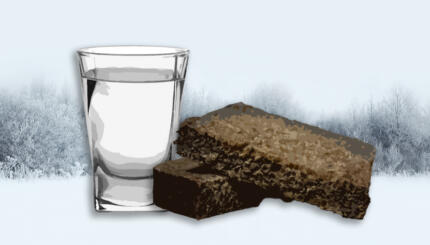This week’s Torah portion, Eikev, spends several verses elaborating on the possessions that the Israelites will one day have, only to warn that once we have our houses and land, it will become far too easy for us to forget God and say to ourselves, “My strength and the might of my hand that has accumulated this wealth for me.” (Deut 8:17). One might be tempted to read this as a warning against pride, but Rabbi Yehoshua Isaac Shapira of Slonim offers a slightly different perspective. He comments regarding these verses that people begin to be corrupted not only when they become wealthy, but even when they think they might become wealthy. Then he cites Proverbs 30:9 “Lest I become poor, and steal,” and explains that a person who is merely afraid that they might become poor, even though they aren’t, will already begin to cheat and steal and act badly towards others.
When we look around at the world right now, we see exactly this. The rising levels of bigotry and nationalism come out of the fear people have of losing what little they have. It has been documented that it’s not the poorest of people who are most prone to lack charity – but those who have a little, and fear to lose it. Communities act out most when they worry that there aren’t enough resources to go around. We circle our wagons and build walls to keep people out lest they take what is “ours.” But while it is understandable that people want to build a bulwark against the fear of want, the Torah is there to tell us that a person who has faith in God cannot indulge this fear.
Perhaps that’s why later in this portion the Torah reminds us, “Behold, to the Lord, your God, belong the heavens and the heavens of the heavens, the earth, and all that is on it.” (Deut. 10:14) This is followed directly by verses reminding us that God loves justice, that God ensures justice to the orphan and the widow, and loves the stranger giving him bread and clothing (10:18) followed by an instruction to us to also love the stranger (10:19), by implication to also give the stranger food and clothing – in other words, not to allow the fear of limited resources to make us “become poor, and steal.” Because it is not only stealing from those who need our help as they flee violence or persecution or poverty, but stealing from God, who put these resources into our hands for us to be its stewards and to share them.



